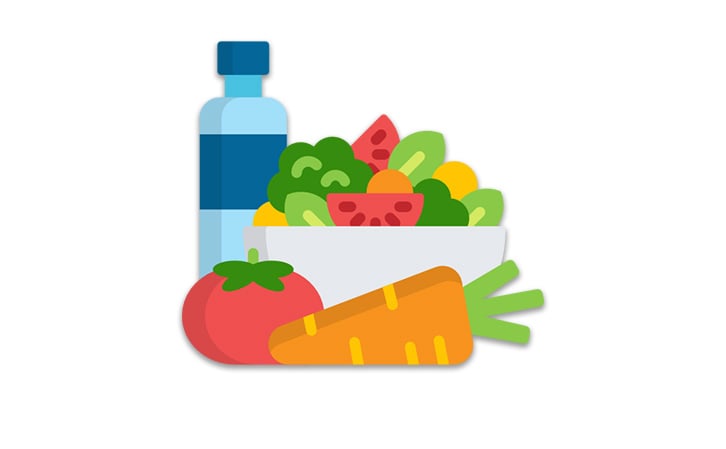Should People with Paralysis Eat Vegan to Live Longer?

Going vegan has become enormously popular in recent years for the general population. For those with spinal cord injuries, going vegan has become popular as well. Looking for a way to be healthier through their diet, people with paralysis can make a huge impact on their health simply by what they eat.
Eating vegan however is much stricter than being vegetarian. Going vegan means that you do not consume anything that once belonged to a living thing in addition to not eating meat. This means no longer eating any dairy products or eggs. All baked goods must be vegan. It requires meal planning and willpower to turn down delicious food.

With 60% of the spinal cord injury population becoming obese after their injury, considering such a change to one's diet doesn't seem so extreme. To some, it may seem like an insurance policy on their heart health and assurance of a longer life span. And it likely is. Many people with spinal cord injuries are prone to heart disease from no longer walking.
Eating animals could have a more negative impact on someone with paralysis than someone with no paralysis because of their less active lifestyle. While the jury is still out on if this is for sure, it doesn't take much to believe that becoming vegan can absolutely help. While the change is difficult and food is healing to many after a spinal cord injury, the benefits of going vegan can be huge to someone who’s paralyzed.
A great example of the exciting things eating vegan can do to someone with a spinal cord injury is Wes Bandemer. A man with C4-5 quadriplegia, he suffered from severe edema and weight gain after his injury. His body was not happy with his paralyzed state. While some people transition easier, his body was having a more difficult time. Inspired by a caregiver who was vegan, Wes decided to give it a go. Before he knew it he was seeing changes to his body he never thought were possible.

The biggest change he saw was dropping 50lbs, and fast. He also saw an improved bowel program and no longer needed as many medications. Fruits and vegetables in high amounts are great forms of fiber. And he saw an improvement in his skin. It became less oily and more clear. Dairy can cause skin troubles. In addition, most people who go vegan experience lowered cholesterol, lowered blood pressure, and improved BMI.
It is very difficult when not you’re walking to get your BMI in the proper range. Diet modification is a highly effective way to get it there. An increase in energy is also experienced when eating vegan. For those living with spinal cord injuries, people will experience decreased energy because of medications, their sedentary lifestyle, and even because of mental health. While exercise is a great way to boost your energy, a vegan diet can do amazing things to your energy levels.
Studies show that people with SCI are also susceptible to having heart disease. They call it the "sitting disease," and it can be detrimental. To overcome a seemingly impossible situation, going vegan can make a huge impact on your heart health. Eliminating red meat from your diet and other processed meat can reverse heart disease in many. Eliminating meat and dairy can also prevent type 1 (dairy) and type 2 (meat) diabetes.
It may seem daunting to go vegan, but if you’re interested in trying it, there are sites and free apps that can help. The Vegan Society is a great place to visit (https://www.vegansociety.com/ ), as is the app - 21-Day Vegan Kick Start (https://apps.apple.com/us/app/21-day-vegan-kickstart/id1118716942). Also, there are more plant-based meat options at grocery stores and restaurants than ever before, all helping people living the vegan lifestyle maintain their diets. Check out these options in the meat aisle at your local grocery store.
Stay Updated on Advancements On Traumatic Brain &
Spinal Cord Injuries
About the Author




